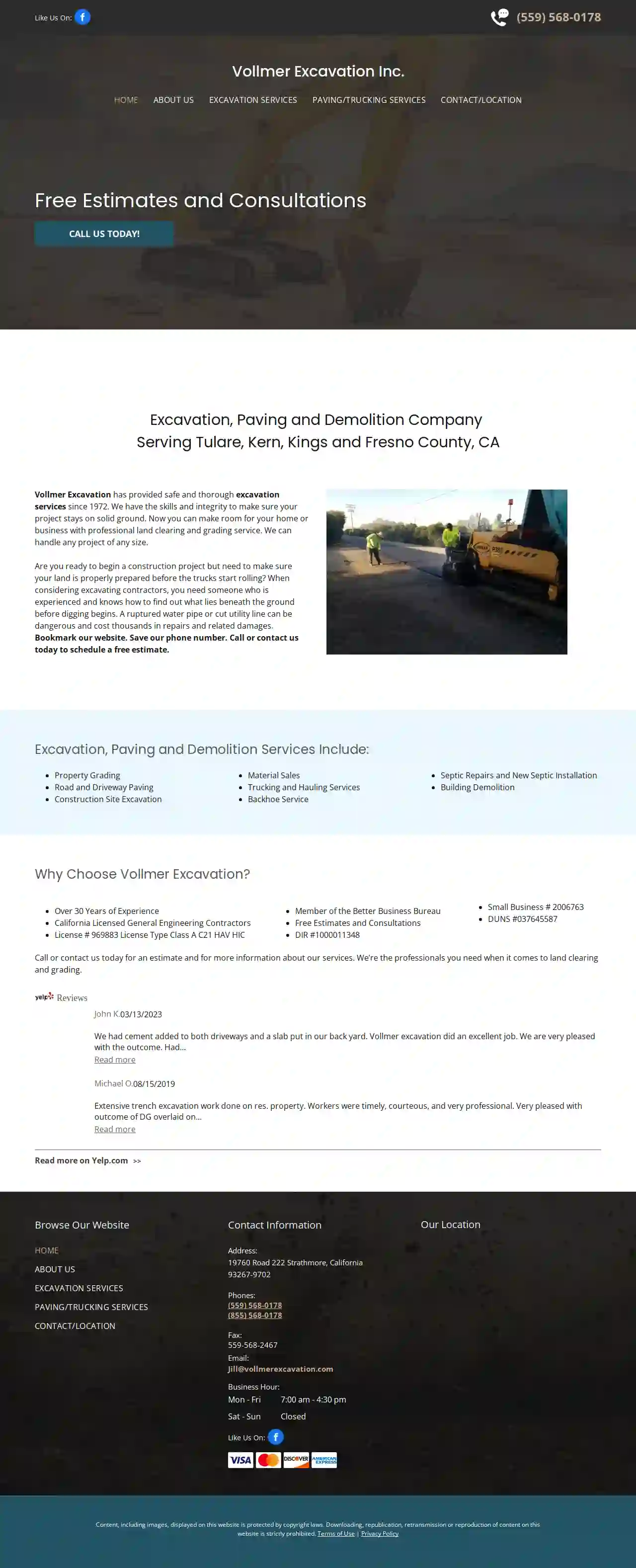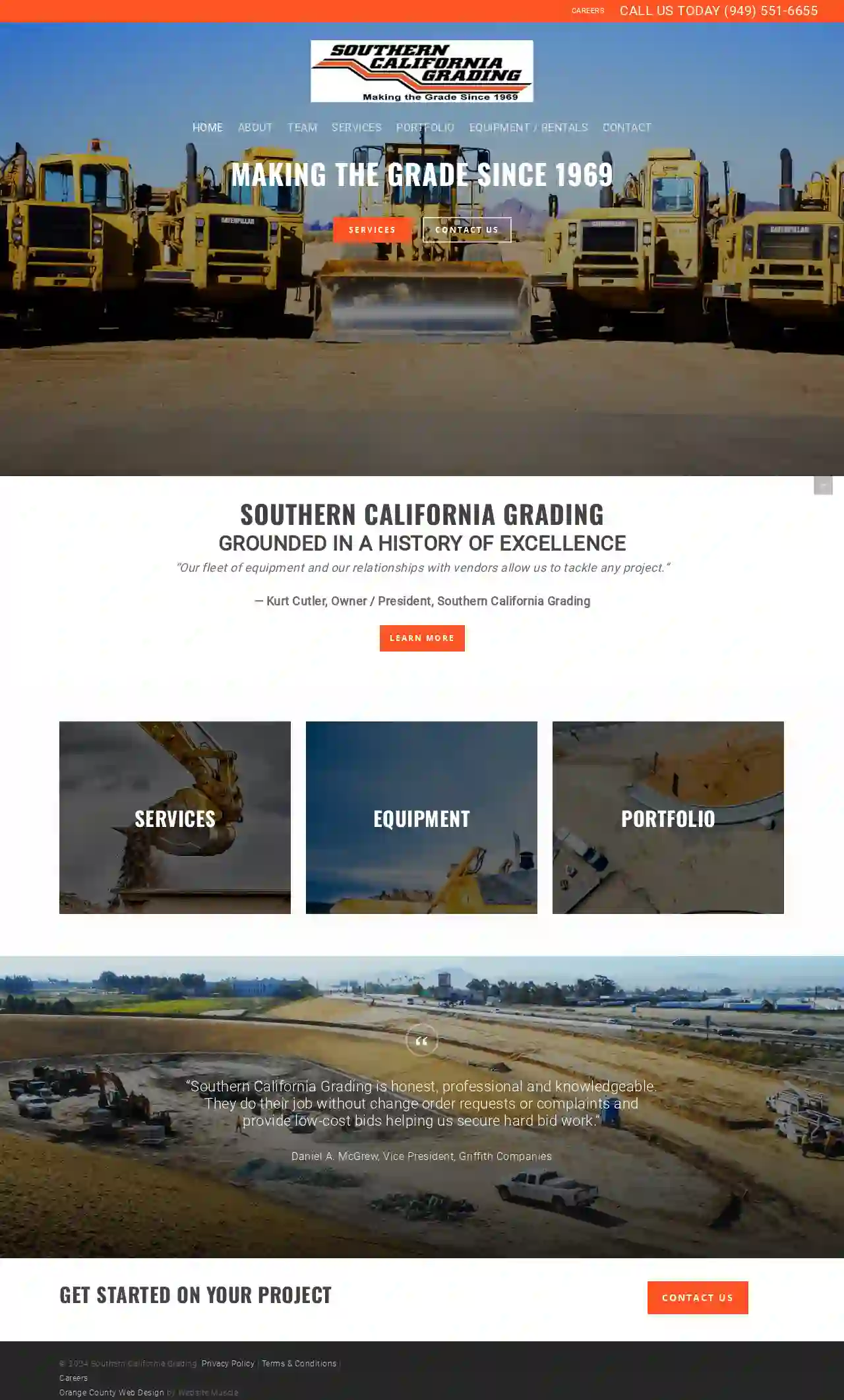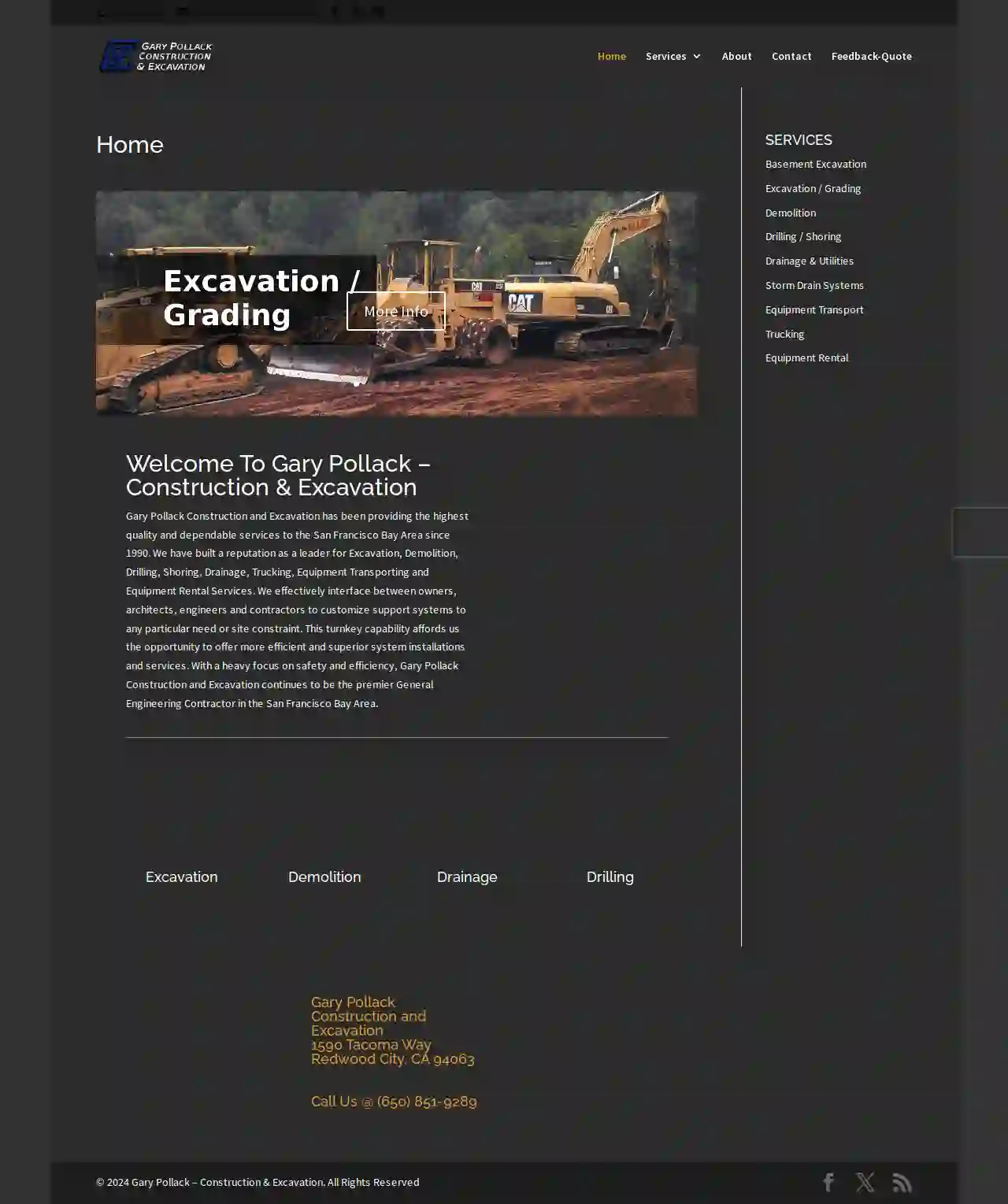Demolition Contractors Sebastopol
Find Demolition Contractors Near Me in Sebastopol
Get up to 3 Demo Companies quotes for your project today! Compare profiles, reviews, accreditations, portfolio, etc... and choose the best service.

Summit Building Group
51 reviewsSacramento, USSummit Building Group: Your Vision, Our Expertise At Summit Building Group, we are passionate about transforming your vision into reality. We are a full-service construction company specializing in a wide range of projects, from residential remodeling and additions to commercial building construction and tenant improvements. Our commitment to quality craftsmanship, meticulous attention to detail, and collaborative approach ensures a seamless and rewarding construction experience. We understand that building or renovating your space is a significant investment, and we are dedicated to providing you with the highest level of service and expertise. Our team of experienced professionals, including architects, designers, project managers, and skilled craftsmen, work together to deliver exceptional results that exceed your expectations. Whether you are dreaming of a stunning kitchen remodel, a spacious home addition, or a modern commercial building, Summit Building Group is your trusted partner. We are committed to building lasting relationships with our clients, providing transparent communication, and delivering projects on time and within budget. Contact us today to schedule a free consultation and let us help you bring your vision to life.
- Services
- Why Us?
- Gallery
Get Quote
Geobear Foundation Repair
536 reviews22603 La Palma Suite 302, Yorba Linda, 92887, USRepair Your Foundation Issues At Their Source Loose and subsiding soils wreak havoc on foundations, causing cracking, settlement, and sinking slabs. Our geopolymer injection process repairs your compromised soils and restores load-bearing integrity. Learn How Geopolymer Injection Works We repair weak soils using a high density geopolymer that is specifically formulated for supporting foundations and concrete slabs. The geopolymer works by filling the voids present in the soils and underneath the slab, and then compacting it into dense matrix or geopolymer in soil. This process reestablishes the soils weight-bearing capacity and contact to your foundation slab. Precision and Excellence Over 200,000 structures treated worldwide We invented the geopolymer soil stabilization solution over 37 years ago, developing and refining the process that has been saving homes and foundations across the globe. The fact is our proprietary techniques, processes, diligence, and polymers are all built around our experiences, successes, and failures that make sure each and every project is done right. This is why our work is guaranteed for 10 years! What to expect from Geobear? Honesty, Professionalism, and a Hassle Free Experience. In our almost 4 decades of experience and over 200,000 projects, we've learned to make the soil repair process as easy an experience as possible. We help homeowners skip costly and disruptive processes that require excavation, heavy equipment, and weeks to months of installation time. Our geopolymer injection solution is so clean and easy that you don't have to move out and the work can be completed in 1-2 days. This means repairing your problem, completing the project in less time, and major cost savings. So why choose Geobear? Because it's a better way.
- Services
- Why Us?
- Testimonials
- Gallery
Get Quote
Vollmer Excavation
511 reviews19760 Road 222, Strathmore, 93267-9702, USAbout Vollmer Excavation Since 1972, Robert Vollmer started his one-man business in Tulare County. He began with a backhoe service, providing services for farming operations, construction jobs, and septic system repairs. After several years, he expanded his services to include swimming pool excavation, dump truck service, and material sales. Over the years, the business has grown and expanded its services throughout the Central Valley. Vollmer Excavation believes no job is too small. Contact our office for a free estimate. We provide all types of earthwork, road construction, residential and commercial projects, asphalt paving, demolition, septic tank repairs and installation, backhoe and trucking services, and material sales. Contact us with any questions regarding the type of work we do, and we will be more than happy to provide you with an estimate for service. Why Choose Vollmer Excavation? Over 30 Years of Experience California Licensed General Engineering Contractors License # 969883 License Type Class A C21 HAV HIC Member of the Better Business Bureau Free Estimates and Consultations History of Vollmer Excavation: Bob was born and raised in the Lindsay, California area. His family lived in the foothills of Lindsay where they worked together. Bob and his siblings would go to school and after they returned home they worked with their parents, packing fruit, caring for the family ranch, and working in the family granite pit. In the 1970’s, Bob worked at the local creamery doing maintenance on their equipment. An acquaintance of his stopped by to let him know that he had a backhoe for sale and wanted to know if Bob knew of anyone who may be interested. The backhoe was really worn out, but Bob thought he could repair it and sell it for a small profit. Friends and neighbors started asking him to do some work for them before he sold his backhoe. Of course, he wasn’t going to say no, one small job led to another and before he knew it he had his own backhoe business. Bob ran the old Ford Major backhoe for about a year and a half until the boom broke in half. He upgraded to a newer machine and landed a nice contract with a swimming pool company digging pools. When a different swimming pool contractor-asked for his services it was time to start hiring help. This small one-man business has grown to 25 employees today, one employee recently retired being one of the original employees starting in 1972 and worked with him until 2013, a total of 41 years! Bob’s employees are more than just employees to him, they are friends, family. To this day Bob still has some of his original customers. It is very important to him to take care of his customers and to make sure they are happy. He has made many emergency, middle of the night runs for his customers, anything from pulling a truck out of the mud to repairing a broken pipeline. We can honestly say his work is his life, he loves to work and to help people. Bob has made a great name for himself in the Central Valley and for very good reason!
- Services
- Why Us?
- Gallery
Get Quote
Urban Irvine Construction
56 reviewsSuite A, 16291 Construction Circle East, Irvine, 92606, USGrounded in a History of Excellence Southern California Grading was founded in 1969 by Bob Cutler and Bob Kehrer—two friends with extensive hands-on engineering and earthwork experience. In our early days, when Orange County was just starting to grow, we forged strong relationships with developers like the Irvine Company. Successful projects ranging from commercial ventures to developing new roads made Southern California Grading essential to bringing people and businesses to Irvine. These efforts began decades-long relationships with our clients and peers in the construction community. A Legacy of Teamwork and Mutual Respect Based in Irvine, California, Southern California Grading is still family-owned, and we pride ourselves on the core values of teamwork and mutual respect. Over the years, we have developed strong relationships with many clients and devoted employees. Some have been with us for over 25 years. Southern California Grading at a Glance $25 million in annual revenues Bondable and insured with an A+ rating Banks with one of the largest U.S. financial institutions Owns and rents its own fleet of heavy equipment Diverse market expertise Our Commitment to Excellence Our core principles of integrity, respect, responsibility and hard work have made us a premier provider of grading and construction services since 1969. We enjoy the challenge of navigating the ups and downs of our industry by focusing on client needs and adapting to industry advancements. A Firm Foundation for Success Today, Southern California Grading has a long history of successful projects throughout California. We’re proud of our reputation as a company that reliably provides a firm foundation for even the most complex building projects. Our experienced employees, technologically advanced equipment, and proven procedures provide assurance that the project will be completed on-schedule, within budget and done right, the first time.
- Services
- Why Us?
- Accreditations
- Gallery
Get Quote
E&F Construction Services
4.73 reviews851 TRESTLE GLEN RD, Oakland, 94610, USAbout E&F Construction E&F Construction was founded in 2004 by Tony Elenteny, who brought years of experience from his family's construction company. In 2015, Paul Hollenbach, with over 15 years of experience running his own construction company, joined forces with Tony. Together, they combined their expertise to create a construction company with over 35 years of experience in general contracting and project management. Their areas of expertise include seismic retrofits, high-end kitchen and bath renovations, whole home remodels, foundation and structural repairs, and light commercial tenant improvements and HOA projects throughout the East Bay. At E&F Construction, they take pride in their exceptional customer service, responsiveness, and clear communication throughout every stage of a project. Whether you have plans ready or are just starting to consider changes to your home or business, their skilled, clean, and thorough crews are available to meet your needs efficiently and within budget. Personally supervised by Tony and Paul, every E&F crew consistently demonstrates meticulous attention to detail, design aesthetics, efficient use of space, timeliness, and respect for your property. E&F Construction understands that making significant aesthetic or structural changes to your home or business is a complex process with many moving parts and a high potential for costly errors. They believe that when done right, improvements can add lasting value, increasing your ROI, satisfaction, and enjoyment of the space. Whether you're looking to earthquake-proof your building, add a master suite, or give your entire home a refresh, your time, money, and project deserve the skilled workmanship, effective project management, and trustworthiness that E&F Construction represents. Don't let your dream project turn into a nightmare. Let E&F Construction handle all your construction needs now and in the future. They care about you and your project! Check us out on Yelp.
- Services
- Why Us?
- Our Team
- Gallery
Get Quote
Schreiber Excavating
53 reviews1767 Kenyon Road, Ontario, 14519, USSchreiber Excavating has a long history of happy clients across New York State. You can expect only the best in construction, utility installation, and trucking services from Dan and his team. Working at an expert level in construction requires highly trained workers and precision equipment. We use only the most advanced technologies to ensure safety, efficiency, and the best price possible. At Schreiber Excavating, our top priority is client satisfaction. You can expect a job well done—every time. Schreiber Excavating has a proven track record of delivering only the finest quality site work and utility services from initial conception to final product. Our highly trained team places safety first while maintaining a diligent focus throughout the entire process. You can trust Schreiber Excavating to make your construction a reality.
- Services
- Why Us?
- Testimonials
- Gallery
Get Quote
Southern California Construction Development Inc
52 reviewsIrvine, USTeam Trust Commitment SOUTHERN CALIFORNIA CONSTRUCTION DEVELOPMENT 南加州建筑开发工程公司秉承着以最专业的团队,提供最一流的服务. 通过我们的一砖一瓦为��城市增添全新的风景线。无论是住宅的翻新, 还是商业大楼的全新开发, 我们都有着值得信赖的专业, 优秀的团队, 及专业的技术, 确保每一个工程的品质。 MISSION 团队合作我们相信公司最大的资产就是员工,和客户像一个团队般的合作,因为我们认为双方对等的信任才是成功最大的关键。诚信原则忠於品质、诚实和勤奋,拥有业界最高道德标准,坚持做对的事情,打造一家以信任为基础的公司,秉持高标准的服务品质,尤其注重对于客户的诚信,打造不可取代性。长久承诺相信和客戶的长久关系是公司的根本命脈,积极的付出及精准的市场分析,把握机遇使我们与众不同。我们承诺,我们视每一位客户为"尊敬的朋友"。
- Services
- Why Us?
- Our Team
- Gallery
Get Quote
ACI - Abate Construction, Inc
4.69 reviews3504 Standard Street, Suite 6, Bakersfield, 93308, USQuality Commercial and Residential Renovations and Remodeling Serving Kern County, CA CALL FOR A FREE ESTIMATE Professional Commercial and Residential Renovation and Remodeling Services Abate Construction, Inc. is a veteran and locally owned and operated general contractor. We are bonded, insured, and licensed to work in both CA and AZ. We are located in Bakersfield, CA, and proudly serve commercial and residential customers in Kern County, including Bakersfield, East Kern, Delano, Oildale, Westside, Ridgecrest, Wasco, Greenfield-Panama, Rosamond, Lamont, and the surrounding areas. We offer free estimates for all our jobs. Let Us Help You Enhance the Beauty and Functionality of Your Home or Business We are your local company – we have over 13 years of experience working in this area of CA. We are familiar with the communities, homes, and permits required to work on any home or business renovation project. Our technicians work diligently to provide you with comprehensive services to maintain or create a home or business that you can be proud of. Our renovation projects can help you enhance the beauty and functionality of your property. About Abate Construction, Inc. Abate Construction, Inc. is dedicated to providing award winning construction service for all projects. Our success as a business is based on a simple and time proven approach. We listen to our client’s needs and understand their expectations. We ensure to exceed your expectations by utilizing the resources from our seasoned staff. We work in partnership with owners, architects, subcontractors, and engineers to deliver results. Abate Construction, Inc. delivers the best cost to quality ratio for each project. We specialize in helping the owner select cost-effective alternatives to maximize value. We Are Committed to Helping You Abate Construction, Inc. has been recognized as one of Bakersfield's premier residential and commercial contracting firms for the past 6 years. Founded with core values of providing professional construction services, high-quality cost-efficient buildings, and on time delivery, we have successfully developed reliability and performance-based relationships with our clients. Organization and good communication are fundamental in our customers’ satisfaction. With over 13 years of experience in the Bakersfield area, we can meet all your construction needs, including remodels, additions, new construction, job management, and consulting.
- Services
- Why Us?
- Testimonials
- Gallery
Get Quote
Cats Excavating Inc
54 reviews1944 54th, San Diego, 92105, USWHO WE ARE Serving Southern California for over 25 years. Cats Excavating has been in business since 1993 and was founded by two brothers, Steve Groves and Cliff Smith. Our focus is to provide quality earthwork and civil general engineering services to our clients with a personal touch. Together with over 60 years of experience, Cats Excavating is one of Southern California's leading construction companies.
- Services
- Why Us?
- Accreditations
- Gallery
Get Quote
Gary Pollack Construction and Excavation
4.76 reviews1590 Tacoma Way, Redwood City, CA, 1590 Tacoma Way Redwood City, 94063, USWelcome To Gary Pollack – Construction & Excavation Gary Pollack Construction and Excavation has been providing the highest quality and dependable services to the San Francisco Bay Area since 1990. We have built a reputation as a leader for Excavation, Demolition, Drilling, Shoring, Drainage, Trucking, Equipment Transporting and Equipment Rental Services. We effectively interface between owners, architects, engineers and contractors to customize support systems to any particular need or site constraint. This turnkey capability affords us the opportunity to offer more efficient and superior system installations and services. With a heavy focus on safety and efficiency, Gary Pollack Construction and Excavation continues to be the premier General Engineering Contractor in the San Francisco Bay Area.
- Services
- Why Us?
- Gallery
Get Quote
Over 22,076+ Excavation Pros onboarded
Our excavation pros operate in Sebastopol and surroundings!
ExcavationHQ has curated and vetted the Best Excavation Contractors in Sebastopol. Find a top & reliable business today.
Frequently Asked Questions About Demolition Contractors
- Dust Suppression: Use water spraying, misting systems, or other dust suppression techniques to control airborne particles.
- Noise Barriers: Erect temporary noise barriers around the demolition site to reduce noise transmission to nearby properties.
- Work Schedule: Schedule noisy demolition activities during permitted hours to minimize disturbance to neighbors.
- Communication: Keep neighbors informed about the demolition schedule and any potential disruptions.
- Enclosure: Sealing off the asbestos-containing material to prevent fiber release.
- Encapsulation: Coating the asbestos-containing material with a sealant to bind the fibers.
- Removal: Carefully removing the asbestos-containing material and disposing of it safely.
- Experience: Look for companies with a proven track record and years of experience in the demolition industry.
- Licensing and Insurance: Ensure the contractor is properly licensed to operate in your area and carries adequate insurance to protect you from liability.
- Safety Record: Inquire about their safety protocols and accident history. A reputable contractor prioritizes safety.
- References and Reviews: Ask for references from past clients and check online reviews to gauge their reputation and customer satisfaction.
- Professionalism: Choose a company that communicates clearly, provides detailed estimates, and has a courteous and responsive team.
How can I minimize the dust and noise from demolition?
What are the different methods of asbestos abatement?
What is asbestos abatement?
How do I find a reputable demolition contractor?
How can I minimize the dust and noise from demolition?
- Dust Suppression: Use water spraying, misting systems, or other dust suppression techniques to control airborne particles.
- Noise Barriers: Erect temporary noise barriers around the demolition site to reduce noise transmission to nearby properties.
- Work Schedule: Schedule noisy demolition activities during permitted hours to minimize disturbance to neighbors.
- Communication: Keep neighbors informed about the demolition schedule and any potential disruptions.
What are the different methods of asbestos abatement?
- Enclosure: Sealing off the asbestos-containing material to prevent fiber release.
- Encapsulation: Coating the asbestos-containing material with a sealant to bind the fibers.
- Removal: Carefully removing the asbestos-containing material and disposing of it safely.
What is asbestos abatement?
How do I find a reputable demolition contractor?
- Experience: Look for companies with a proven track record and years of experience in the demolition industry.
- Licensing and Insurance: Ensure the contractor is properly licensed to operate in your area and carries adequate insurance to protect you from liability.
- Safety Record: Inquire about their safety protocols and accident history. A reputable contractor prioritizes safety.
- References and Reviews: Ask for references from past clients and check online reviews to gauge their reputation and customer satisfaction.
- Professionalism: Choose a company that communicates clearly, provides detailed estimates, and has a courteous and responsive team.